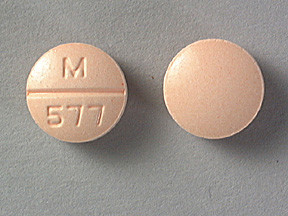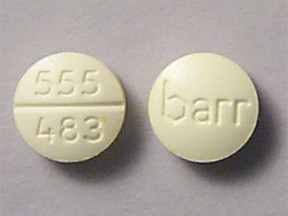AMILORIDE/HYDROCHLOROTHIAZIDE - ORAL
PHONETIC PRONUNCIATION: (a-MIL-oh-ride/HYE-droe-KLOR-oh-THYE-a-zide)
COMMON BRAND NAME(S): Moduretic
GENERIC NAME(S): amiloride HCl/hydrochlorothiazide
Uses
USES: This product is used to treat high blood pressure (hypertension), heart failure, or extra fluid in the body (edema). Lowering high blood pressure helps prevent strokes, heart attacks, and kidney problems. This product contains two medications: amiloride and hydrochlorothiazide. Both medications are "water pills" (diuretics) and cause your body to get rid of extra salt and water. This effect may increase the amount of urine you make when you first start the product. Amiloride also helps to treat or prevent low blood potassium levels.
How to use AMILORIDE/HYDROCHLOROTHIAZIDE - ORAL
HOW TO USE: Take this medication by mouth with food, usually once or twice daily or as directed by your doctor. If you take this drug too close to bedtime, you may need to wake up to urinate. Therefore, it is best to take this medication at least 4 hours before your bedtime. If you have any questions about how and when to take this medication, ask your doctor or pharmacist. The dosage is based on your medical condition and response to treatment. Use this medication regularly in order to get the most benefit from it. To help you remember, take it at the same time(s) each day. It is important to continue taking this medication even if you feel well. Most people with high blood pressure do not feel sick. If you also take certain drugs to lower your cholesterol (bile acid-binding resins such as cholestyramine or colestipol), take this product at least 4 hours before or at least 4 to 6 hours after these medications. Tell your doctor if your condition does not improve or if it worsens (such as your blood pressure readings remain high or increase).
Side Effects
Precautions
Interactions
Overdose
Images

- color
- light orange
- shape
- round
- imprint
- M 577

- color
- light orange
- shape
- round
- imprint
- M 577

- color
- light yellow
- shape
- round
- imprint
- barr, 555 483

- color
- light yellow
- shape
- round
- imprint
- barr, 555 483

- color
- light orange
- shape
- round
- imprint
- M 577

- color
- light orange
- shape
- round
- imprint
- M 577
Reviews
Faq for AMILORIDE/HYDROCHLOROTHIAZIDE - ORAL
Amiloride/Hydrochlorothiazide - Oral is a medication that is used to treat high blood pressure and fluid retention (edema) in conditions such as congestive heart failure or kidney disease.
Amiloride/Hydrochlorothiazide - Oral is a combination of two drugs - amiloride and hydrochlorothiazide. Amiloride works by helping the body get rid of excess salt and water while preventing the loss of too much potassium. Hydrochlorothiazide is a diuretic that helps the kidneys remove excess salt and water from the body, also preventing the loss of potassium.
Common side effects may include dizziness, headache, increased urination, thirst, nausea, vomiting, and muscle cramps. Notify your doctor if any of these side effects persist or worsen.
Amiloride/Hydrochlorothiazide - Oral can sometimes lead to a decrease in potassium levels, known as hypokalemia. It is important to have regular blood tests to monitor potassium levels, as too low or too high levels can be harmful to your health.
You should take Amiloride/Hydrochlorothiazide - Oral exactly as prescribed by your doctor. It is usually taken once or twice daily with food to avoid stomach upset. Drink plenty of fluids while taking this medication. Do not stop taking it without consulting your doctor.
It is generally recommended to avoid or limit alcohol consumption while taking Amiloride/Hydrochlorothiazide - Oral. Alcohol may increase the risk of side effects such as dizziness or lightheadedness.
Amiloride/Hydrochlorothiazide - Oral may interact with other drugs, including certain diuretics, corticosteroids, nonsteroidal anti-inflammatory drugs (NSAIDs), lithium, and digoxin. It is important to inform your doctor about all the medications you are taking to avoid potential interactions.
If you miss a dose, take it as soon as you remember. However, if it is close to the time for your next dose, skip the missed dose and continue with your regular dosing schedule. Do not take a double dose to make up for a missed one.
Amiloride/Hydrochlorothiazide - Oral should not be used during pregnancy unless absolutely necessary. It may harm an unborn baby. It is also not recommended while breastfeeding as the medication may pass into breast milk and harm the nursing infant. Consult your doctor for more information about the risks and benefits in your specific situation.
Warning
WARNING: This product can rarely cause high potassium levels (hyperkalemia). This effect is more likely to occur in older adults and in patients with kidney disease, diabetes, or a serious illness. Potassium levels must be closely monitored on a regular basis while taking this medication. If not treated, very high potassium levels can sometimes be fatal. Tell your doctor right away if you develop any symptoms of high potassium levels, including muscle weakness, slow/irregular heartbeat, numb/tingling skin.
Disclaimer
IMPORTANT: HOW TO USE THIS INFORMATION: This is a summary and does NOT have all possible information about this product. This information does not assure that this product is safe, effective, or appropriate for you. This information is not individual medical advice and does not substitute for the advice of your health care professional. Always ask your health care professional for complete information about this product and your specific health needs.
No Reviews Yet